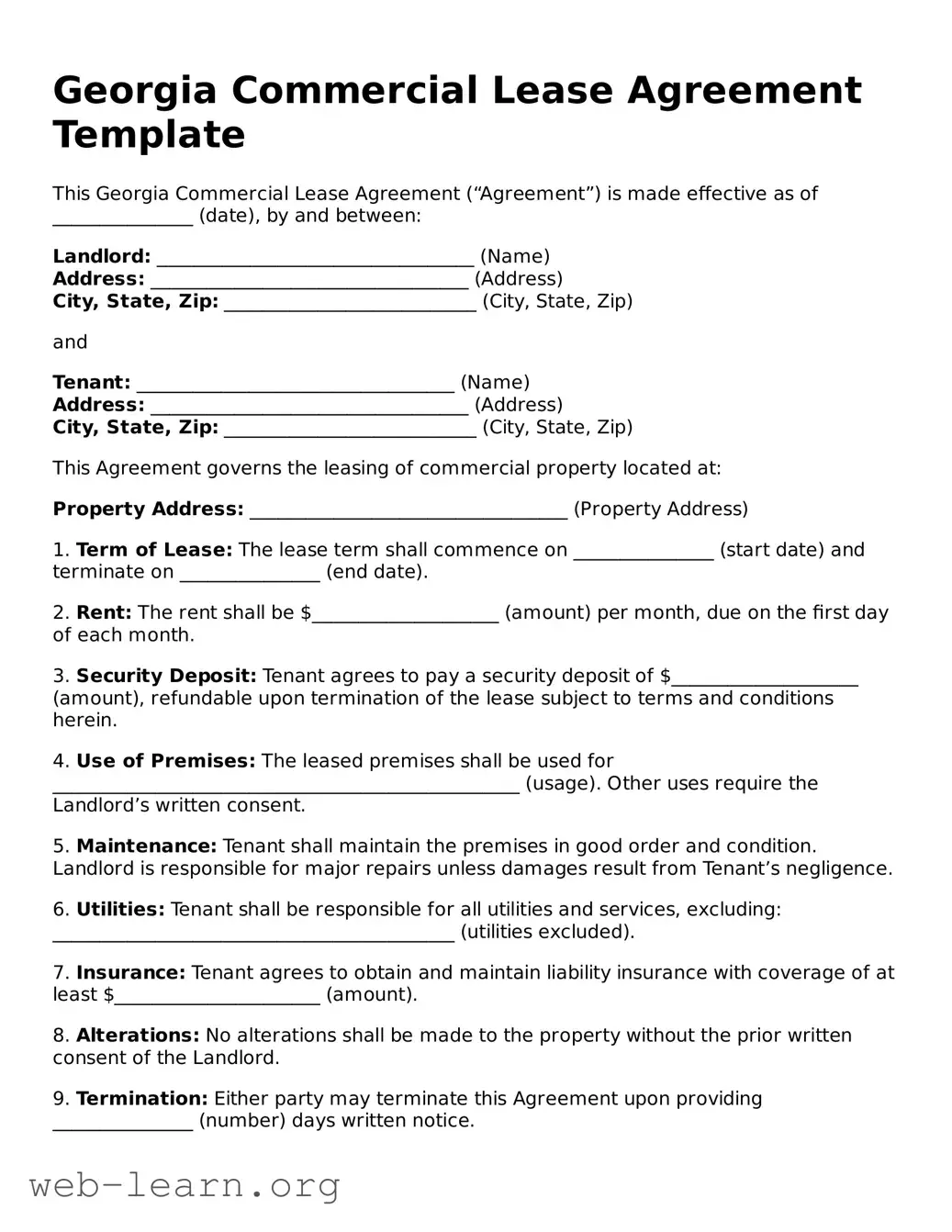Georgia Commercial Lease Agreement Template
This Georgia Commercial Lease Agreement (“Agreement”) is made effective as of _______________ (date), by and between:
Landlord: __________________________________ (Name)
Address: __________________________________ (Address)
City, State, Zip: ___________________________ (City, State, Zip)
and
Tenant: __________________________________ (Name)
Address: __________________________________ (Address)
City, State, Zip: ___________________________ (City, State, Zip)
This Agreement governs the leasing of commercial property located at:
Property Address: __________________________________ (Property Address)
1. Term of Lease: The lease term shall commence on _______________ (start date) and terminate on _______________ (end date).
2. Rent: The rent shall be $____________________ (amount) per month, due on the first day of each month.
3. Security Deposit: Tenant agrees to pay a security deposit of $____________________ (amount), refundable upon termination of the lease subject to terms and conditions herein.
4. Use of Premises: The leased premises shall be used for __________________________________________________ (usage). Other uses require the Landlord’s written consent.
5. Maintenance: Tenant shall maintain the premises in good order and condition. Landlord is responsible for major repairs unless damages result from Tenant’s negligence.
6. Utilities: Tenant shall be responsible for all utilities and services, excluding: ___________________________________________ (utilities excluded).
7. Insurance: Tenant agrees to obtain and maintain liability insurance with coverage of at least $______________________ (amount).
8. Alterations: No alterations shall be made to the property without the prior written consent of the Landlord.
9. Termination: Either party may terminate this Agreement upon providing _______________ (number) days written notice.
10. Governing Law: This Agreement shall be governed by and construed in accordance with the laws of the State of Georgia.
Signatures:
___________________________
Landlord Signature & Date
___________________________
Tenant Signature & Date
This Agreement constitutes the entire understanding between both parties and supersedes all prior agreements, whether written or oral.
By signing below, both the Landlord and Tenant acknowledge that they have read and understood this Lease Agreement.
